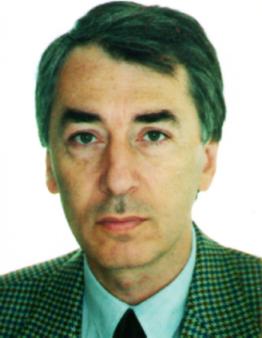
The Gödel Prize is an annual prize for outstanding papers in the area of theoretical computer science, given jointly by the European Association for Theoretical Computer Science (EATCS) and the Association for Computing Machinery Special Interest Group on Algorithms and Computational Theory. The award is named in honor of Kurt Gödel. Gödel's connection to theoretical computer science is that he was the first to mention the "P versus NP" question, in a 1956 letter to John von Neumann in which Gödel asked whether a certain NP-complete problem could be solved in quadratic or linear time.

Dagstuhl is a computer science research center in Germany, located in and named after a district of the town of Wadern, Merzig-Wadern, Saarland.

The European Association for Theoretical Computer Science (EATCS) is an international organization with a European focus, founded in 1972. Its aim is to facilitate the exchange of ideas and results among theoretical computer scientists as well as to stimulate cooperation between the theoretical and the practical community in computer science.

Christos Charilaos Papadimitriou is a Greek theoretical computer scientist and the Donovan Family Professor of Computer Science at Columbia University.
ACM SIGACT or SIGACT is the Association for Computing Machinery Special Interest Group on Algorithms and Computation Theory, whose purpose is support of research in theoretical computer science. It was founded in 1968 by Patrick C. Fischer.

Rajeev Alur is an American professor of computer science at the University of Pennsylvania who has made contributions to formal methods, programming languages, and automata theory, including notably the introduction of timed automata and nested words.

Kurt Mehlhorn is a German theoretical computer scientist. He has been a vice president of the Max Planck Society and is director of the Max Planck Institute for Computer Science.
DLT, the International Conference on Developments in Language Theory is an academic conference in the field of computer science held annually under the auspices of the European Association for Theoretical Computer Science. Like most theoretical computer science conferences its contributions are strongly peer-reviewed; the articles appear in proceedings published in Springer Lecture Notes in Computer Science. Extended versions of selected papers of each year's conference appear in international journals, such as Theoretical Computer Science and International Journal of Foundations of Computer Science.
DCFS, the International Workshop on Descriptional Complexity of Formal Systems is an annual academic conference in the field of computer science.
CIAA, the International Conference on Implementation and Application of Automata is an annual academic conference in the field of computer science. Its purpose is to bring together members of the academic, research, and industrial community who have an interest in the theory, implementation, and application of automata and related structures. There, the conference concerns research on all aspects of implementation and application of automata and related structures, including theoretical aspects. In 2000, the conference grew out of the Workshop on Implementation of Automata (WIA).
Michael Stewart Paterson, is a British computer scientist, who was the director of the Centre for Discrete Mathematics and its Applications (DIMAP) at the University of Warwick until 2007, and chair of the department of computer science in 2005.
The European Symposium on Algorithms (ESA) is an international conference covering the field of algorithms. It has been held annually since 1993, typically in early Autumn in a different European location each year. Like most theoretical computer science conferences its contributions are strongly peer-reviewed; the articles appear in proceedings published in Springer Lecture Notes in Computer Science. Acceptance rate of ESA is 24% in 2012 in both Design and Analysis and Engineering and Applications tracks.
The Annual ACM Symposium on Theory of Computing (STOC) is an academic conference in the field of theoretical computer science. STOC has been organized annually since 1969, typically in May or June; the conference is sponsored by the Association for Computing Machinery special interest group SIGACT. Acceptance rate of STOC, averaged from 1970 to 2012, is 31%, with the rate of 29% in 2012.

Maurice Paul Nivat was a French computer scientist. His research in computer science spanned the areas of formal languages, programming language semantics, and discrete geometry. A 2006 citation for an honorary doctorate (Ph.D.) called Nivat one of the fathers of theoretical computer science. He was a professor at the University Paris Diderot until 2001.

Richard Ryan Williams, known as Ryan Williams, is an American theoretical computer scientist working in computational complexity theory and algorithms.

Peter Ružička was a Slovak computer scientist and mathematician who worked in the fields of distributed computing and computer networks. He was a professor at the Comenius University, Faculty of Mathematics, Physics and Informatics working in several research areas of theoretical computer science throughout his long career.
Christopher Umans is a professor of Computer Science in the Computing and Mathematical Sciences Department at the California Institute of Technology. He is known for work on algorithms, computational complexity, algebraic complexity, and hardness of approximation.
Thomas Colcombet is a French theoretical computer scientist known for settling major open problems on tree walking automata jointly with Mikołaj Bojańczyk. Colcombet is currently a CNRS Research Director at Paris Diderot University.








